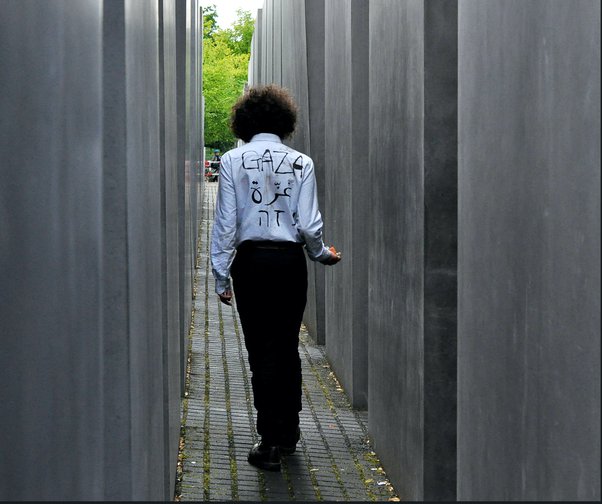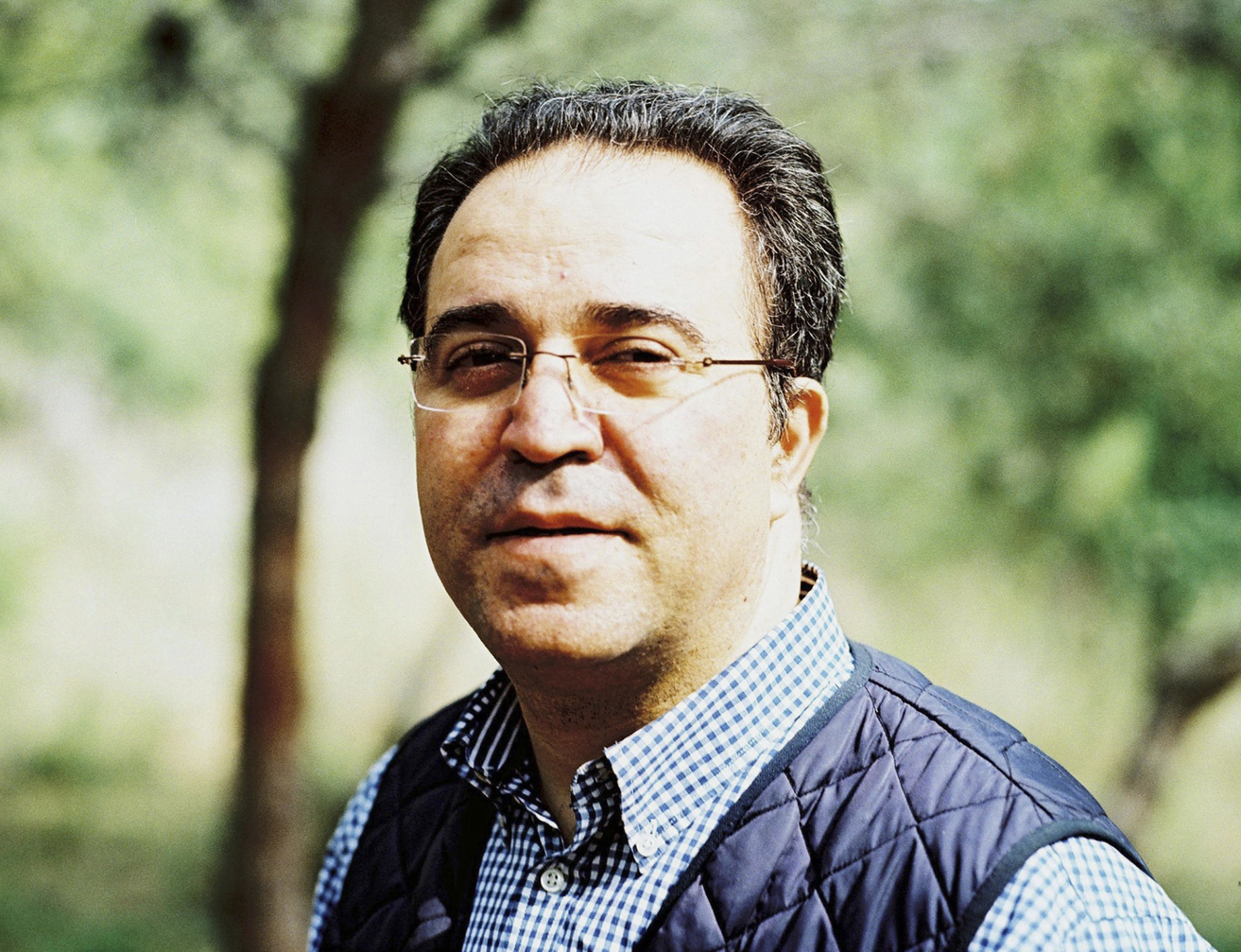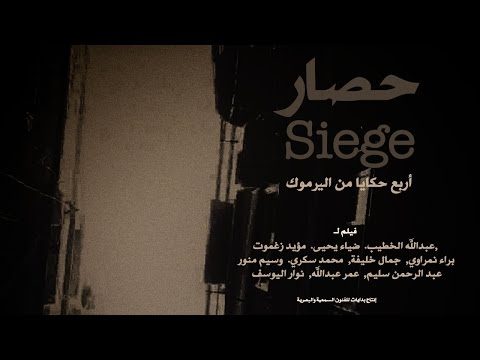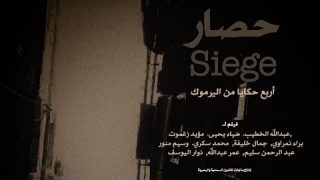This interview was published in partnership between SyriaUntold and openDemocracy's North Africa and West Asia page, exploring the emerging post-2011 Syrian cinema; its politics, production challenges, censorship, viewership and where it may be heading next.
For SyriaUntold’s cinema reporting series, we have explored Syrian filmmaking through the eyes of Syrian directors, journalists and academics.
Here, Maya Milani and Enrico De Angelis speak with Mohammad Ali Atassi, a journalist and documentary filmmaker who in 2013 founded Bidayyat for Audiovisual Arts, a Syrian "civil film company" based in Beirut.
Bidayyat has since then produced dozens of documentaries and short experimental films centered largely around Syrians’ experiences of war and exile.
Where did Bidayyat—whose name means “beginnings” in Arabic—find its own start, and what is its place in the new wave of Syrian cinema? Can there be such a thing as a “national” cinema for a filmmaking industry as fragmented and scattered across borders as Syrians themselves?
This conversation has been edited for flow.
Bidayyat is one of the main platforms behind the wave of Syrian cinema that emerged after the uprising. In terms of production, do you think there is a common thread that all of your films share?
Since it was established, Bidayyat aimed at assisting a young generation of men and women filmmakers in their first steps into documentary and experimental cinema. The name originates from this idea.
With the exception of some professional and ethical principles that we tried to abide by and promote through our training and production, in my opinion it is not fair to say that we tried to set a common trend or denominator through the films and the directors with whom we collaborated.
Not only because each director has her or his own viewpoint, artistic style and subjectivity, but also because we are not a homogenous group. We do not have a unitary artistic vision.
Of course the directors may have common denominators when it comes to generational affiliation, position in the field of cinema, vision and artistic practices, or their political position vis-à-vis the Syrian context.
But it is the role of researchers and critics to sort them out, not us. Otherwise we would risk to pretend to speak in the name of others and impose labels on them. This would be too pretentious.
Can you describe the main steps of the production process that characterize Bidayyat? The name indicates it is aimed at first-time or new filmmakers—is this still the case? Or has Bidayyat now developed its own network of filmmakers with whom it often works?
Bidayyat was established in Lebanon at the end of 2013 as a civil company to support a young generation of filmmakers, especially from Syria, Palestine and Lebanon. We tried to put the production at the service of the training and vice versa. We avoided working as a traditional production company. At the same time, we tried to keep an artistic level that would match the ambitions of the new generation.
A new national cinema requires institutions, and a country and a people who still live within the borders of that country. It also requires educational structures, production companies and specific laws. It includes shared spaces and places in which people can agree and disagree with each other. Not places in which people can be betrayed and killed.
As for the network of directors Bidayyat has worked with, the collaboration was limited only to their first works.
Our choices however...were limited by our presence in Beirut. So the selection was done among the circles of beneficiaries attending our training sources and our networks. We had to take into consideration the limitations imposed by working in a very difficult environment in terms of legal and security issues.
Would you say it has become harder today to get funding for Syrian films? Is there a global fatigue with Syria?
There is no doubt that the world no longer pays much attention to the Syrian tragedy, because of how long it has gone on, and because people are getting used to the horrors—oh that expression! This inevitably translates into a severe shortage of funding, especially when it comes to the cultural and cinematic fields.
At this time, for example, we could not obtain funding from any donor. We try to operate thanks to what we can spare from the grants for the films we produce or co-produce. I don't know how long we can continue this way, and even whether or not we decide to continue.
Bidayyat was established in Beirut in the wake of the Syrian uprising because the city had become a corridor and a meeting point for young Syrian and Palestinian activists on the one hand, and on the other hand for those who were involved with related artistic, visual and cinematic activities.
We tried since the beginning to work with them, and we encouraged them to interact with their Lebanese counterparts. Most of them thought Beirut was only a temporary place while waiting to return to a free Syria. They soon discovered that their journey was going to be longer. Moreover, Lebanon, because of its restrictions in terms of residency and work, was not the best place to have a decent life, especially for creative workers.
Ultimately, most of those who were able to fled to Europe—a long journey with no near return in sight.
As a consequence, Beirut lost many young talents who could have injected enormous energies into the city’s cultural life. And we, as Bidayyat, lost one of the main ingredients on which our existence was based. Moreover, it is becoming increasingly difficult, if not impossible, to offer training and workshops to participants coming from Syria. This element alone pushed us to start reflecting, and to think whether it is feasible to continue or not.
Do you think that recent films shape a new Syrian national cinema, as film curator Rasha Salti might put it? Or is it rather a fragmented production made of individual artists?
There is certainly a new Syrian cinema. As there is new music, new novels and new plastic arts. However, I wouldn't use the world "watani" [“national” in Arabic]. I would rather speak of a new wave, one related to young generations, changing tools and practices, in the context of completely different social and political conditions. And this new wave tends strongly towards creative documentary cinema, author cinema or experimental cinema.
With the outbreak of the Syrian revolution in 2011, a new generation emerged in covering the hopes and tragedies of the Syrian revolution. A new space to rebel and create emerged, which accompanied the birth of a new cinematic language.
On the other hand, a new national cinema requires institutions, and a country, and a people who still live within the borders of that country. It also requires educational structures, production companies, and specific laws. It includes shared spaces and places in which people can agree and disagree with each other. Not places in which people can be betrayed and killed.
Do you see a clear rupture between Syrian cinema before 2011 and after?
In my opinion, we have to take a step back in history, to look at the emergence of a new wave of Syrian cinema. In the 2000s, with the advent of digital technologies and their spread, the costs of producing documentary films strongly decreased and more people could make them. This enabled many young Syrian women and men to begin their experiences outside the umbrella of the [Syrian Ministry of Culture’s] General Organization of Cinema.
With the outbreak of the Syrian revolution in 2011, a new generation emerged in covering the hopes and tragedies of the Syrian revolution. A new space to rebel and create emerged, which accompanied the birth of a new cinematic language, different ways of filming, and different forms of cinematic expression. These ways of making cinema were different from the approach of the [government-affiliated] General Organization of Cinema, which focused on fictional movies with higher budgets.
The Syrian public and its cinema: A tale of estrangement - Part I
28 November 2019
We assisted in the shaping of a new and young cinema wave, which distanced itself from the logic of fast press coverage and TV reportage. Rather, the new generation expressed itself and its reality through creative documentary films which offered a wider space for cinematic reflection and expression. These films present the imprints and the viewpoints of this new generation.
These films circulate mainly in festivals or dedicated screenings and are only rarely available online. The result is that many Syrians themselves cannot see these films. Is this inevitable? Can a truly Syrian cinema emerge if it continues to speak mainly to others?
It is not true that Syrian films did not reach their audience. Many of them were shown on satellite channels and Syrian opposition channels, or they circulated online.
Perhaps you refer to films produced by big international companies, but even these ones were subjected to piracy, placed online and viewed by Syrians.
Of course this should not preclude that Syrian directors, as any other directors, have the right to present their films in international festivals before they are broadcast on television or circulate on the internet.
How is this foreign audience using its viewership of Syrian cinema to inform itself about the reality in Syria, as opposed to other types of media content? Have recent films played into this role at all?
In my opinion there is no such thing as a "foreign audience.” And even if we assume that it exists, then it would not be a single entity. The Turkish audience, for example, is different from the German or the American audience.
The issue in the end is related more to how films are distributed and to the broadcasting policies. And these differ from country to country and from film to film.
Concerning Syrian films, they are produced in different countries and have different distribution policies depending on where they were produced. For these reasons, I don't think that all these movies can be placed together in one basket.
As for Bidayyat, I don't think it is its role to take a position in relation to history and narratives. In the end, the film is the expression of the directors' and authors' viewpoints. And Bidayyat has produced films with different narratives, sometimes even contradictory. The only thing we avoided was producing films that collude with the narratives of war criminals and that conceal their crimes.
There is certainly a new Syrian cinema. As there is new music, new novels and new plastic arts. However, I wouldn't use the world "watani" [“national”].
In what ways does the films’ viewership differ between a Syrian and a foreign audience? How does this affect the filmmaking process for the directors? What about the funding and distribution process for the producers?
I think that first of all the directors have to be honest with themselves, their specific histories and their inner voices. Regarding the issues of funding and the public, I can say that it is the goal of any director or producer that the film reaches a larger public, wherever it is.
As for Bidayyat, we never produced a film for a specific Western audience, or one that would meet the alleged tendencies or requests that characterize this or that funder.
Our main concern and that of the directors with whom we collaborated was to address primarily Syrian and Arab audiences. At the same time, we always tried to reach a wider public too.
In our conversations with other filmmakers, we found that there is, in general, a complicated relationship between documentary films and the public from their nations of origin. This disconnect isn’t unique to Syrian cinema. Perhaps in Syrian cinema’s case, however, many filmmakers ’ exile further contributes to this disconnect. What are your thoughts?
I don't think I have an answer to this question.
What I can say is that there are many Syrian directors who live today in Europe, where they are trying to start a new life in what could be a long exile.
We have to wait to see how this will affect their work in the future. Will the Syrian wound remain open, present, and will their production be included in the new Syrian cinema? Or will it belong more to the realities of the countries where they found refuge?









